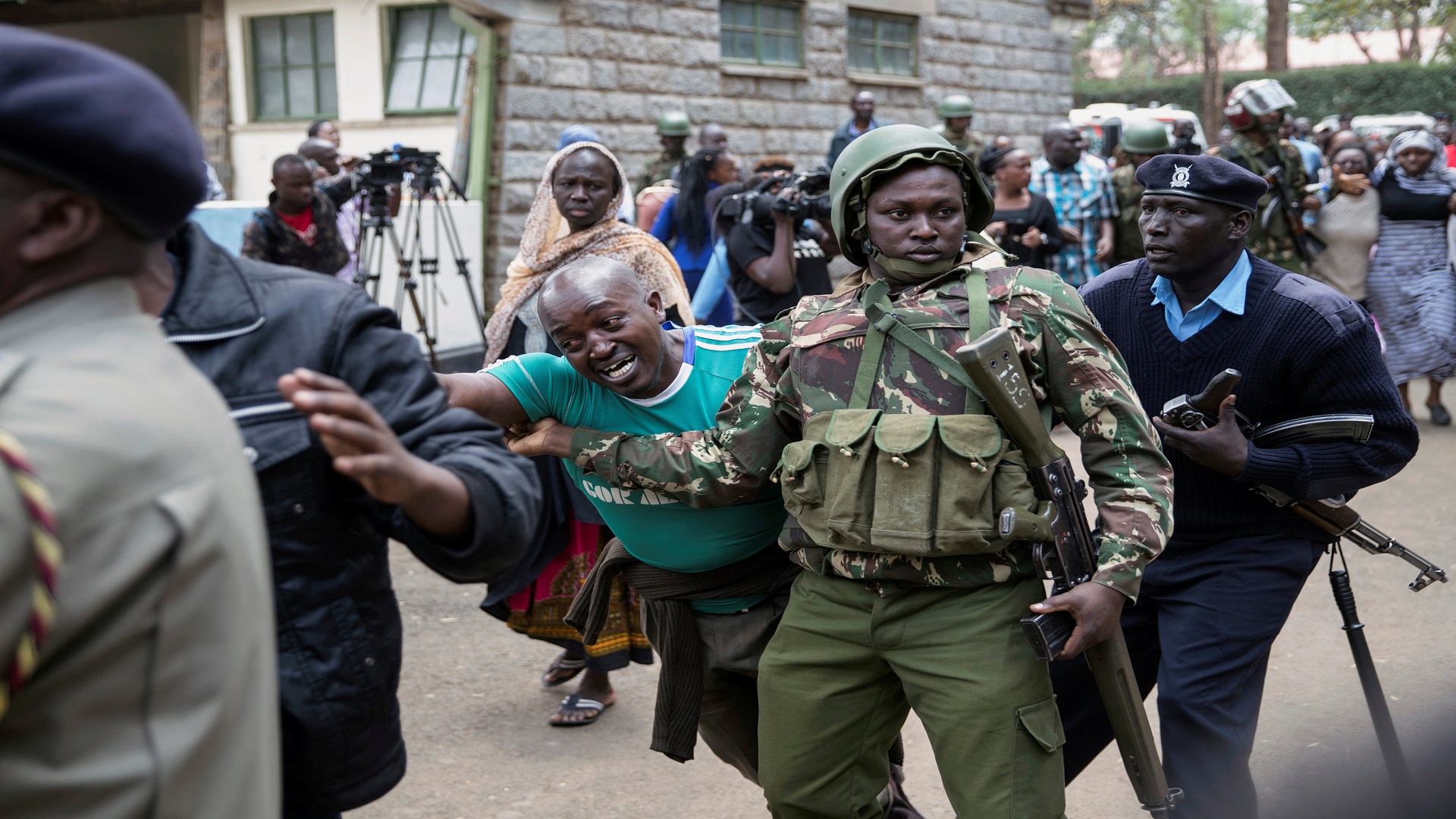Image: Kenyan police officers prevent a relative from entering the scene where seven Kenyan teenage schoolgirls died and 10 more were hospitalized after a fire engulfed their boarding school dormitory in Nairobi, Kenya September 2, 2017. REUTERS/Baz Ratner

By John Ndiso and Katharine Houreld
NAIROBI (Reuters) – Kenya’s education minister said on Monday that arson was to blame for a weekend blaze that killed nine pupils at a girls’ boarding school, part of a rising trend of deliberate school fires.
“It was not an accident, it was arson,” Minister Fred Matiang’i said of the fire on Saturday at Moi Girls School in Nairobi.
The Kenya Red Cross said on its Twitter feed there had been three other school fires reported in different parts of the country on Monday.
Many of the fires were set by students protesting harsh discipline, poor teaching and corruption, said Canadian Elizabeth Cooper, assistant professor of International Studies at Simon Fraser University, who spent four years researching the subject.
Students she interviewed complained about poor food, scarce teaching materials, harsh teachers, and management that ignored their concerns. Many compared their schools to prison and said they destroyed their schools so they could go home.
In one case, boys had drained water tanks and cut phone lines before setting fire to their principal’s car and pushing it into his home.
They were angry that he had been collecting money from their parents for three years for a school bus, but had not bought it. If a pupil needed hospital treatment, the principal drove them himself and charged the family, she said.
In another case, girls smeared butter on their curtains and beds before setting them alight, Cooper said. Fires peak just before exams and mock exams.
“The students always say, ‘no one listens to our concerns’.”
Around 350 Kenyan schools caught fire from 2015 to 2016, according to the government. This compared, according to one academic source, with 76 fires from 2011 to 2013. It was not clear how many fires were deliberate. Numbers for 2014 were not available.
RIVALRIES
Cooper said some schools set on fire have dismissed their principals afterward. There have been few successful prosecutions.
Kenya frequently sees deadly protests, including after the presidential elections held last month. Cooper said students sometimes cited violent protests by slum residents or university students that successfully publicised their causes, and sought to emulate them.
“Students learn that authorities don’t respond until they present a threat,” she said. “It’s one way for voiceless citizens to be heard.”
But Matiang’i said some arson attacks were also related to fights over staff appointments in schools, where senior positions can bring financial rewards.
“Some of the fires we have faced before in the sector are related to that kind of thing, politicization of school headship, politicization of responsibility in the education sector. It is not right,” he said in a televised press conference.
Kenya is East Africa’s largest economy but unemployment is high and corruption is rife, making life difficult for many ordinary people.
Control of a school can mean not just a government salary but an opportunity to extort extra money from students and parents in fees or other charges.
(Writing by Katharine Houreld; Editing by George Obulutsa and Ralph Boulton)
Copyright 2017 Thomson Reuters. Click for Restrictions.


